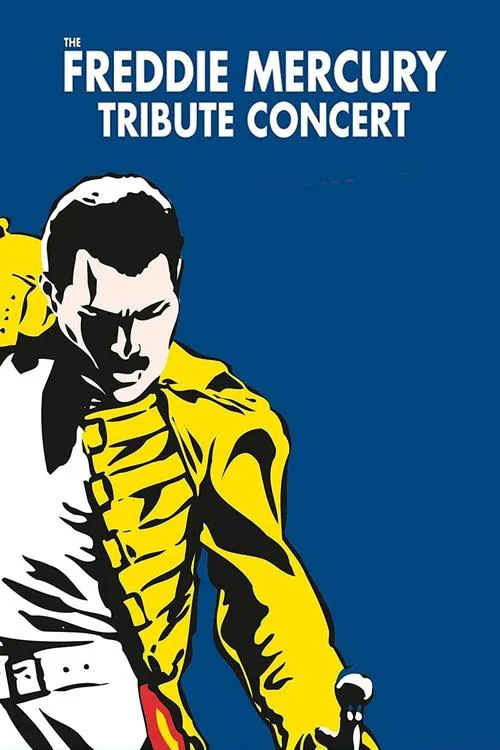The Freddie Mercury Tribute Concert

Plot
The Freddie Mercury Tribute Concert was a pivotal musical event that took place on April 20, 1992, at Wembley Stadium in London. It marked a poignant tribute to the life and career of the inimitable Freddie Mercury, the enigmatic lead vocalist and driving force behind the iconic rock band Queen. Mercury had passed away in November 1991, leaving behind a legacy that spanned over two decades and countless sold-out tours, chart-topping hits, and sold-out albums. Organized by Queen's remaining members, Brian May and Roger Taylor, alongside their manager Jim Beach, the concert aimed to honor Mercury's memory while also raising awareness and funds for AIDS research. The disease that took Mercury's life had become a personal and pressing concern for the world, and the tribute act sought to address this issue head-on. The massive gathering of music's biggest stars and closest friends to Queen served as a testament to Mercury's enduring impact on the music scene. Performers took to the stage in various combinations, often trading places with the surviving members of Queen for an unforgettable fusion of new and familiar songs. These collaborations brought a unique flavor to the concert, blending the distinct styles of the participating artists with Queen's signature grandeur. The show began with an electrifying rendition of David Bowie's "All the Young Dudes," performed by an all-star lineup that included Metallica's James Hetfield, Def Leppard, and Pete Townshend from The Who. This initial number demonstrated the high caliber of talent that had gathered to celebrate Mercury's life. Elton John, who had long been a close friend and collaborator with Mercury, followed this energetic start with his heartfelt tribute to "The Show Must Go On," one of Queen's final studio outputs, released mere months before Mercury's passing. Accompanied by Brian May and Roger Taylor, who skillfully re-created the original arrangement, Elton John poured his heart and soul into this poignant rendition, paying a moving tribute to his friend and musical partner. The night was filled with an incredible array of covers, with numerous performers tackling some of Queen's most beloved songs. David Bowie delivered a hauntingly beautiful "Under Pressure," while Axl Rose brought a raw intensity to his take on "Bohemian Rhapsody." Other notable covers included George Michael's emotive performance of "Somebody to Love" and Liza Minnelli's spirited version of "We Will Rock You." The collaboration between Queen and the assembled guest artists produced some truly magical moments, such as Brian May's spirited rendition of "Laziest Day" with Extreme, and Roger Taylor's impassioned delivery of "The Highway Star" with the surviving members of Deep Purple. Perhaps the most poignant highlight of the concert came when Elton John joined Brian May, Roger Taylor, and the remaining members of Queen, John Deacon, to deliver a rousing performance of "The Love of My Life" and a powerful rendition of "We Are the Champions" – a triumphant anthem that had become an anthem for all who attended or listened from afar. As the night drew to a close, the remaining Queen members joined Metallica, Def Leppard, and David Bowie for an unforgettable finale of Queen's monumental piece "Heaven and Hell." Although this song technically belonged to Black Sabbath, the assembled ensemble breathed new life into the iconic rock number. The Freddie Mercury Tribute Concert served as a testament to the enduring bond between Brian May, Roger Taylor, and their late friend and lead vocalist, Freddie Mercury. As the show unfolded, it was clear that this was more than just a farewell tribute – it was an opportunity for the music world to come together, celebrate Mercury's unparalleled contribution to rock music, and make a meaningful difference in the fight against AIDS. With millions watching worldwide and over $30 million raised for AIDS research, the Freddie Mercury Tribute Concert marked a momentous occasion that not only honored Mercury's memory but also amplified the impact of his legacy. Even years after the initial broadcast, the concert remains an essential piece of music history, inspiring fans and fellow musicians to cherish the enduring music and spirit of Freddie Mercury and Queen.
Reviews
Recommendations




